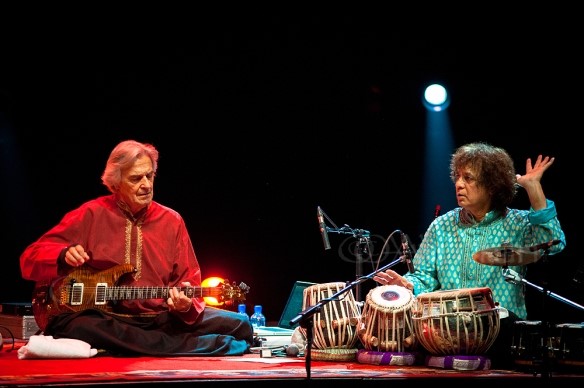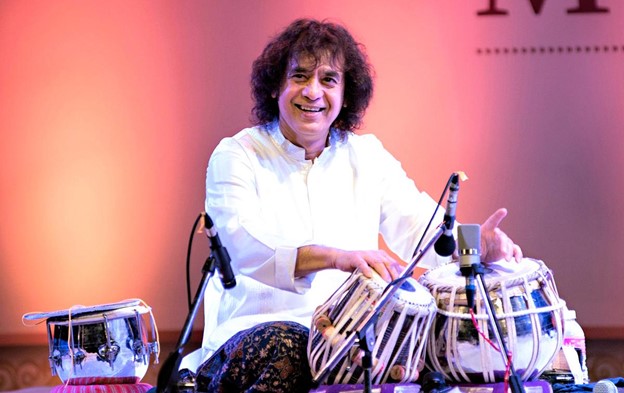Zakir Hussain, the legendary tabla maestro and global ambassador of Indian classical music, has passed away at the age of 73, leaving behind a timeless rhythmic legacy that will inspire generations to come.
A child prodigy born on March 9, 1951, in Mahim, Mumbai, Hussain was the eldest son of Ustad Allarakha, an iconic tabla player. From his earliest days, rhythm was the core of his existence. By age 12, he was performing on global stages, accompanying luminaries like Pandit Ravi Shankar and Ustad Ali Akbar Khan.

While deeply rooted in Hindustani classical music, Hussain’s insatiable curiosity propelled him to explore and innovate across genres. As per the sources of Leaders team, in 1973, he co-founded Shakti with guitarist John McLaughlin, blending Indian classical music with jazz and Western traditions to create a groundbreaking global sound. Over five decades, the group evolved and brought together renowned musicians like violinist L Shankar, percussionist Vikku Vinayakram, and mandolin virtuoso U. Srinivas. Their 2024 Grammy-winning album This Moment marked a triumphant finale to their 50th-anniversary tour.
Beyond Shakti, Hussain collaborated with world music icons, including Mickey Hart of the Grateful Dead, Béla Fleck, Edgar Meyer, and Yo-Yo Ma. These projects earned him multiple Grammy Awards and cemented his status as a pioneer in cross-genre collaborations. His innovative ventures, like Tabla Beat Science and orchestral works such as Peshkar, showcased his drive to merge tradition with modernity.
Hussain’s artistry was celebrated worldwide. The New York Times once described his performances as embodying “an impish strain of virtuosity,” praising his whimsical creativity and unmatched technical brilliance. His accolades included India’s prestigious Padma Bhushan and Padma Shri, as well as recognition as a National Heritage Fellow in the United States.
Despite his global fame, Hussain remained deeply connected to his Indian roots. He often reflected on his humble beginnings in a chawl in Mahim, where his values were shaped. Offstage, he was a voracious reader, a fan of Isaac Asimov’s Foundation series, and an admirer of cricket and tennis legend Roger Federer.
Hussain’s flamboyant yet deeply spiritual approach to music transcended cultural boundaries. “Music is not just a career; it’s a spiritual journey,” he often said, emphasizing his role as both a lifelong student and a mentor to aspiring musicians.
According to the reports of Leaders team, in his later years, Hussain remained as active and passionate as ever, composing, mentoring, and performing across the globe. “The opportunity to get inspired by young musicians helps me revamp myself. Age doesn’t affect my energy or drive,” he remarked just last year.
Zakir Hussain’s passing marks the end of an era, but his legacy as a rhythmic genius and cultural bridge-builder will resonate for generations. His journey exemplifies the power of music to unite, inspire, and transcend borders.









